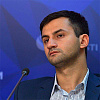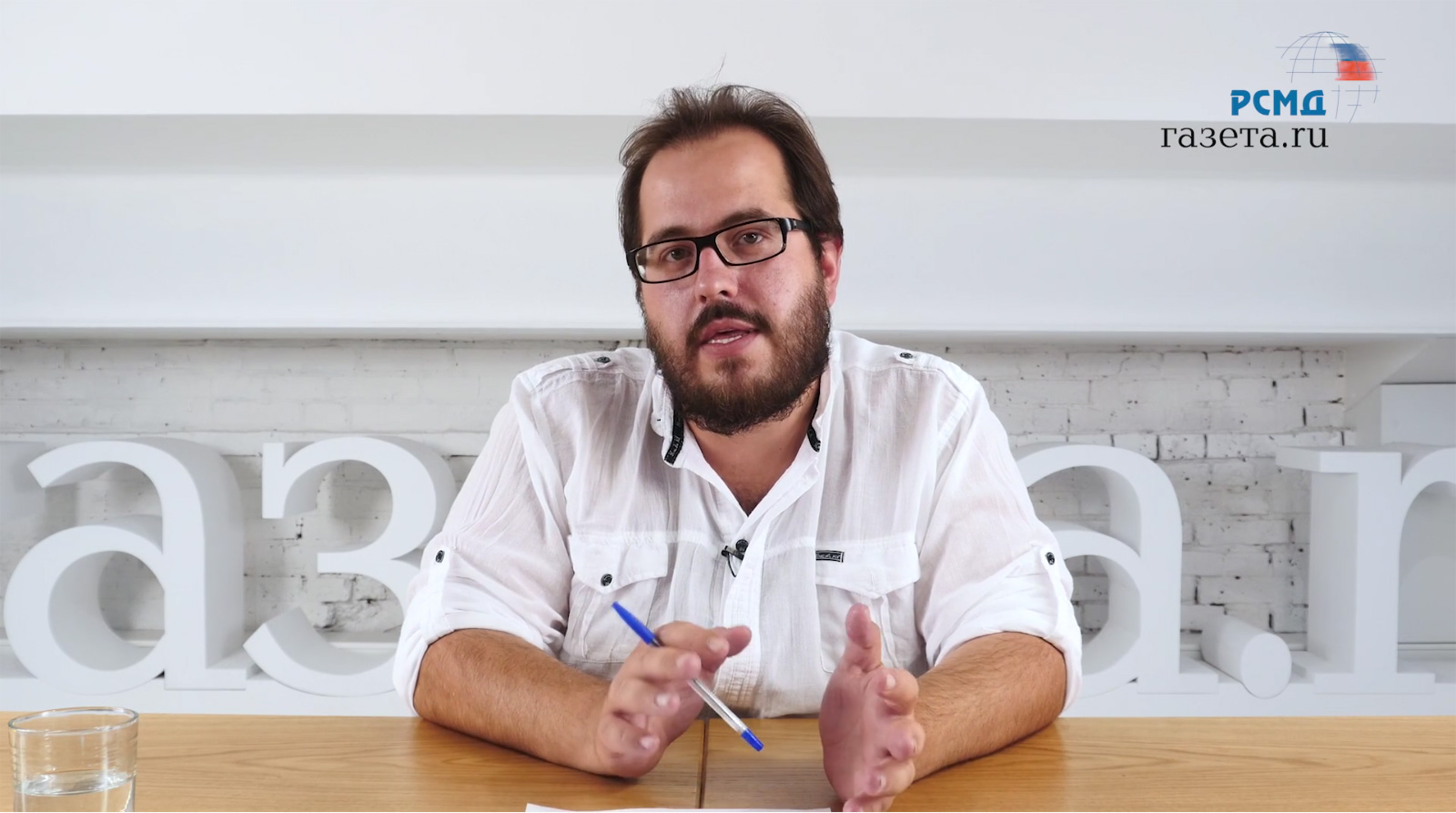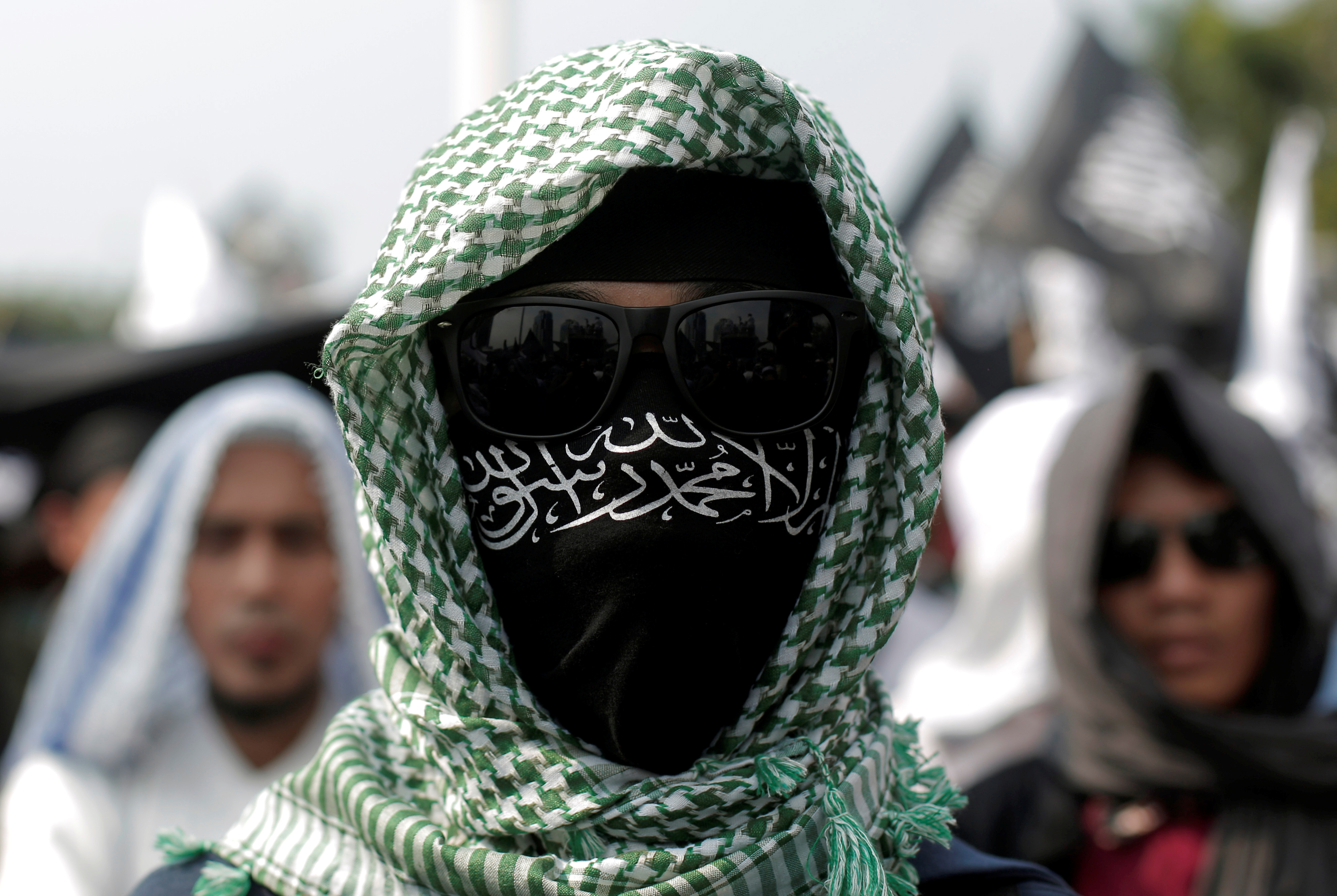Russia’s policy in Western Asia is traditionally based on two principles: the reliance on state-centricity in international relations, and non-interference in the internal affairs of other states. Russia opposes the policy of regime change from the outside, particularly in circumvention of international institutions — notably, the UN Security Council.
In today’s reality of statehood crisis in the region, Russia continues to adhere to these principles, while making adjustments to its actions “on the ground”. It should be noted that Moscow does not have a clearly defined strategy regarding the Kurds. In light of Russia’s return to the Middle East and the increasing role that Kurdish political forces are playing in the region, Moscow has started to shape its “Kurdish policy”. In addition, over the last year, Russia’s energy companies have boosted their presence in Iraqi Kurdistan.
Old Comrades
Russia has traditionally maintained contacts with Kurdish political forces in various parts of the region. The unresolved Kurdish question periodically affected the agenda in Moscow. Since the late XIX century, Russia has bolstered its interaction with the Kurds. For instance, Kurdistansky Uyezd was founded in 1923 in Soviet Azerbaijan with a centre in the city of Lachin. But it was dissolved in the 1930s. After the outbreak of World War II and the deployment of Soviet troops in the north of Iran, the USSR became interested in Iranian Kurds. Moscow welcomed the news of the foundation of the Republic of Mahabad in Iran, but the Iranian side dissolved the Republic less than a year later. Mullah Mustafa Barzani, commander of the Republican army and future legendary leader of the Iraqi Kurds, led his followers across the border into the USSR, where Barzani was granted asylum. After the 1958 Iraq revolution, Barzani and his followers were able to return to the country.
The USSR’s interaction with Iraqi Kurds was particularly active during the Iraqi crisis of the 1960s–1970s. The USSR acted as an intermediary between the Kurds led by Barzani and President of Iraq Saddam Hussein. Russian scholars have written a number of papers on the era. In particular, Yevgeny Primakov stressed the special significance of Russia–Kurd relations in his memoires. Primakov did a lot of work in the area, meeting with both President Saddam Hussein and Mullah Mustafa Barzani several times. The USSR participated in the process to work out a compromise solution in 1970 based on the idea of creating an autonomous Iraqi Kurdistan. However, domestic political problems and mistrust led to constant breaches of the arrangements. In 1974, Baghdad granted autonomous status to Iraqi Kurdistan, but Barzani thought it was limited and did not include some areas populated by Kurds. Primarily, the oil-rich Kirkuk was not part of the autonomous area. Another Kurdish uprising ended in defeat. The Kurdish movement was divided and lost the support of Iran pursuant to the 1975 arrangements between Tehran and Baghdad. Subsequently, Baghdad followed the policy of “suppressing” the Kurdish movement and changing the demographic make-up of the territories populated by Kurds. The USSR, for its part, turned a blind eye to many things as it profited from cooperation with Baghdad.
The Iran–Iraq War of 1980–1989 left Iraq in debt to those countries that often “pumped” weapons into the territories of both sides in the conflict. As for the Kurds, Baghdad continued its strategy of violent suppression. After the war with Iran ended, the Iraqi regime was on the verge of collapse. Saddam Hussein’s decision to start another war in 1991, this time in Kuwait, proved fatal. In the UN Security Council, the USSR supported the restoration of Kuwait’s statehood and criticized Hussein’s regime. In August 1991, the UN Security Council prohibited the Iraqi Air Force from flying over the Kurdistan Autonomous Region north of the 36th parallel, and over Shiite-populated territories south of the 32nd
parallel.
After the collapse of the USSR, the United States exerted influence over regional processes. In 2003, it made the decision to overthrow Saddam Hussein’s regime under a false pretext and in circumvention of the UN Security Council. By that time, Iraq had been under sanctions for over ten years. It had no access to technologies, and the black market flourished. The sanctions prevented the state from modernizing and developing. Iraq was under constant threat of invasion. Since the 1990s, the regime had relied on the traditional institutions of Iraqi society, including tribal structures. The special role of religion was emphasized, and the leader’s cult of personality flourished. At the time, the words “Allahu Akbar” (Allah is great) in Hussein’s handwriting appeared on Iraq’s flag. Patrimonial and clan ties now dominated the country, which, given the deterioration of the civil services and institutions, prevented the country from collapsing completely. It was against this background in the early 1990s that the predominantly Kurdish north of Iraq succeeded in establishing control over Kurdish-populated territories. The Kurds were led by the Patriotic Union of Kurdistan (PUK) headed by Jalal Talabani and the Kurdistan Democratic Party (KDP) headed by Masoud Barzani.
In October 1992, the Kurdish parliament passed the decision to establish a federative state in the north of Iraq comprising three provinces (Erbil, Sulaymaniyah and Dohuk) and the city of Kirkuk (de facto governed by Baghdad) within the framework of “democratic, free, and united Iraq”. However, during the 1990s, tensions between the Barzani and Talabani clans caused an inter-Kurdish conflict. Saddam Hussein used that opportunity, and in 1996, with Barzani on the verge of defeat, Hussein gained a chance to move his troops into the area and restore his control over the north of the country. However, the United States entered the fray and started bombing Iraq. In 1998, the United States brokered the “Washington Agreement” between the PUK and the KDP, thereby ending the Iraq Kurdish Civil War. The United States also provided some economic aid to the region. In 2003, the United States invaded Iraq and launched the so-called “de-Ba’athification” process, which had greater impact on local Sunnis than it did on the Kurds.
During that time, some Kurdish politicians accused Moscow of ignoring the Kurdish question. After the collapse of the USSR, the Middle East was not a priority of Russia’s foreign policy. However, Russia realized that it needed to interact with Baghdad rather than with Kurds. According to Russian scholar N. Mosaki, Russia’s “Iraqi policy” at the time was determined not so much by geopolitical considerations as it was by economic considerations, most of them oil-related. Moscow understood that Iraqi oil was a rival for Russia’s fossil fuels. Extending the sanctions imposed on Iraq was advantageous for Russian business circles, as they profited from higher oil prices stemming from Iraq’s limited market participation. Not everyone shared this opinion, however. Many believed that Russia could gain great opportunities from participating in developing Iraqi oil deposits.
Russia maintained diplomatic contacts with the Kurds. The need for a mediator in the region remained, but everyone understood that only the United States was capable of achieving results. During the 1990s, Moscow tried to play an active part in UN–Iraq talks on the International Atomic Energy Agency’s (IAEA) access to nuclear facilities. Iraq’s political elite did not trust foreigners. It trusted the United States even less, and not without reason. The Western rhetoric, mostly propagated by the United States, as well as the sanctions regime, did not inject a positive note into the talks. The few agreements mediated, among others, by Russian diplomats, were derailed time and again. At the same time, NATO and the United States particularly maintained their presence in the Gulf.
In 2003, before the U.S.-led coalition invasion of Iraq, Yevgeny Primakov was sent to Baghdad on a special mission. While the United States had already made the decision to invade, Russian representatives tried to find a diplomatic way out of the situation. However, they did not succeed due to Washington’s unwillingness to look for a peaceful solution and Baghdad’s mistrust and miscalculations [1].
Russia and Iraqi Kurdistan in “Post-Saddam” Iraq
After 2003, Iraqi Kurdistan gained broad autonomy within Iraq. The 2005 Constitution assigned three regions to Kurdistan’s regional government. Nevertheless, Baghdad and Erbil still debate the status of two more regions and hydrocarbon-rich Kirkuk. Article 140 of the Constitution of Iraq stipulates that a referendum had to be held in the disputed territories prior to 2007. The referendum was not held, and Erbil blamed Baghdad, now in the context of the 2017 referendum. The new era of Iraqi history did not have a critical influence on the nature of Russia–Iraqi Kurdistan diplomatic relations. There is a Russian embassy in Baghdad and a Consulate General in Erbil.
Much depends on the domestic political development of Kurdistan itself. With the start of the Syrian crisis in 2011 and the crisis in Baghdad, the domestic political and economic situation in Kurdistan began to deteriorate due to the emergence of ISIS, the need to wage a war and internal migration. Most damaging, however, has been the falling energy prices. Revenues from producing oil and selling it to Turkey (and then on to Israel among other states) via a pipeline filled Iraqi Kurdistan’s treasury, allowing the region to maintain a reasonable quality of life and resolve social issues. Unsubstantiated reports surfaced about oil being smuggled into neighbouring states. In addition, Erbil suffered when transfers from Baghdad were stopped in 2014 pursuant to the decision of then Prime Minister of Iraq Nouri al-Maliki. Barzani kept playing up the issue of Iraqi Kurdistan’s independence, thereby deflecting attention from existing problems linked to Kurdistan’s grave socioeconomic situation. In addition, such rhetoric allowed Barzani to draw the population’s attention away from his legitimacy as a president; his tenure expired in 2015 and the parliament extended his term in office. The referendum held on September 25, 2017 continues to ensure popular support for his clan. At the same time, Barzani himself said that, should Kurdistan gain independence, he would not run for president. The Kurds see their future country as a federated parliamentary republic, which also prompts a great many questions.
Today, there are signs of disunity within the PUK, which allows Barzani to push his decisions. Initially, PUK was unwilling to support the referendum. Most likely there was some kind of economic agreement between the parties. In the current situation, the main task for Russia is to prevent a serious imbalance in its relations with the two parties. A special position was adopted by the Gorran Movement, which was founded in 2009. As a party to some extent close to the PUK, it became popular against the background of falling oil prices. Gorran called for reforms in Kurdistan. What is more, the leader of the movement, Nawshirwan Mustafa, also accused the PUK’s leaders of giving too many powers to the Kurdistan Democratic Party, and to Barzani personally. Nevertheless, Gorran has been losing influence since the death of N. Mustafa in May 2017. The situation in Kurdistan changes rather rapidly, and the once banned Gorran Movement — its deputies did not have the opportunity to take part in the work of parliament — could become part of a coalition with the PUK. By doing so, it would strengthen the PUK’s positions. Such a scenario is in many ways explained by the clan relations of the leaders of the PUK and the Gorran Movement. However, the development scenarios of these processes may differ, and Russia has to be ready for whichever one comes to be.
Moscow maintains contacts with both Erbil and Sulaymaniyah, whose work in Russia is led by the Kurdistan Regional Government (KRG) Representation in Moscow. The KRG Representation works actively with the Kurdish diaspora in Russia, organizes large-scale cultural events and provides medical assistance to Peshmerga fighters. Iraqi Kurdistan is also important to Russia from the point of view of Erbil and Sulaymaniyah having developed ties with individual Kurdish groups in Syria. The sides believe it is necessary to coordinate their actions in the fight against terrorism.
With Russia’s increased presence in the Middle East, cooperation with Iraqi Kurdistan has also increased in a number of different areas, including the energy sector. Russian companies such as Gazprom Neft and Bashneft, among others, operate in the region. The role of Rosneft has increased significantly over the past two years. Its acquisition of Bashneft, which was already conducting operations in Kurdistan, automatically gave it a presence in the region. In late 2016, it was announced that Erbil and Rosneft had signed a number of major contracts. Additional agreements were signed at the St. Petersburg International Economic Forum, making Rosneft one of the leading energy companies in Iraqi Kurdistan. Rosneft took over the management of the energy transport system, with a capacity of over 700,000 barrels per day. This figure is expected to increase to 1 million barrels by the end of 2019. The amount that Rosneft has invested in the autonomous region has not been disclosed, but it is believed to be somewhere around $4 billion for the next two years. This is a huge amount by Iraqi Kurdistan’s standards, especially given the fact that the first contracts were implemented on the basis of prepayment (which certainly is not the norm for the region). In any event, these steps change the configuration in the Middle East towards strengthening the role of Russia but still not “balancing” the influence of the United States in the area.
Thus, in addition to developing oil fields, Rosneft has acquired a transport infrastructure that consists primarily of the pipeline to Turkey, which is key for Iraqi Kurdistan. This approach has given the Kurds protection from the actions of the Turkish authorities, while at the same time affording Moscow yet greater leverage over Ankara. Rosneft is also investing in a new gas pipeline from Kurdistan to Turkey, the construction of which should be completed by the end of 2019. In the context of modern Middle Eastern realities, Moscow is actively working with Ankara while at the same time maintaining contacts with Kurdish political forces. With the development of the Syrian crisis and the increasing role of Kurds in the region, Moscow is making certain adjustments to its policies.
Moscow believes that any change in the status of an individual region or district in a foreign state is the internal business of that state. As such, any change in the status of Iraqi Kurdistan should, in theory, be the result of negotiations and the mutual desire of all parties concerned, primarily Erbil and Baghdad.
After the collapse of the USSR, the Middle East was not viewed as a priority region by Russia. Moscow did not see any need to strengthen its presence in the region. In the early 2000s, Russia’s interest in Iraqi Kurdistan was connected exclusively with the possible economic benefits. In the “post-Saddam” period, Russia maintained contacts with both Baghdad and the Kurds, but did not pursue an active policy. With the return of Moscow to the region and the increased role of the Kurds in regional processes, contacts between Russia and the Kurds intensified. Moscow has left itself some space for action in the event that the Kurds acquire any kind of self-governance. Even if the Kurds achieve maximum independence, Moscow could, with the correct approach, gain additional leverage over the four capitals in the region.
Thus, Russia considers the possibility of new states emerging on the map of the Middle East exclusively within the framework of international law and with the consent of all sides concerned. Russia recognizes the integrity of the states in the region, and also believes that the status of regions of states should be decided through negotiations. Pragmatism in Russia’s foreign policy and its contacts with Kurdish representatives “on the ground” will allow it to adapt to various scenarios, regardless of the status of the Kurdish political entities.
1. Примаков Е.М. Встречи на перекрестках / Евгений Примаков. – М.: ЗАО Издательство Центрполиграф, 2015. – p. 607.







